Josep Borrell High Representative of the EU for Foreign Affairs and Security Policy© Wikicommons
On May 9, in a statement to mark the 70th anniversary of the Schuman Declaration, which launched Europe on the road towards the European Union, the EU’s High Representative for Foreign Affairs, Josep Borrell, said “Our response to the corona virus will define our global rôle for years to come”.
What he failed to mention was that the definition has been somewhat soiled by apparently caving in to Chinese pressure over an innocent-looking article the EU hoped to place in two leading Chinese newspapers, the China Daily and the People’s Daily, with a potential readership of more than one billion. It was about the corona virus and specifically – if only in passing – mentioned China as its place of origin. The first case in the world occurred in Wuhan in the province of Hubei in November 2019, where it was referred to as “a novel form of pneumonia”. It was thought to have transited from a wild animal to humans and the Chinese authorities temporarily closed and disinfected a wildlife and wild meat market – called a ‘wet market’ – where they suspected the outbreak had begun. Since then, the Chinese have sought to play down the source of the outbreak, even accusing the United States military of bringing the virus to China. However, other agents of misinformation have got involved since then, especially Russia – the worst offender – and Iran, both of which have been spreading misinformation about the corona virus to cause confusion, to discredit the EU and, probably, to cause more deaths. But a bald statement that the virus originated in China was too much for Beijing. It insisted that the sentence be removed.
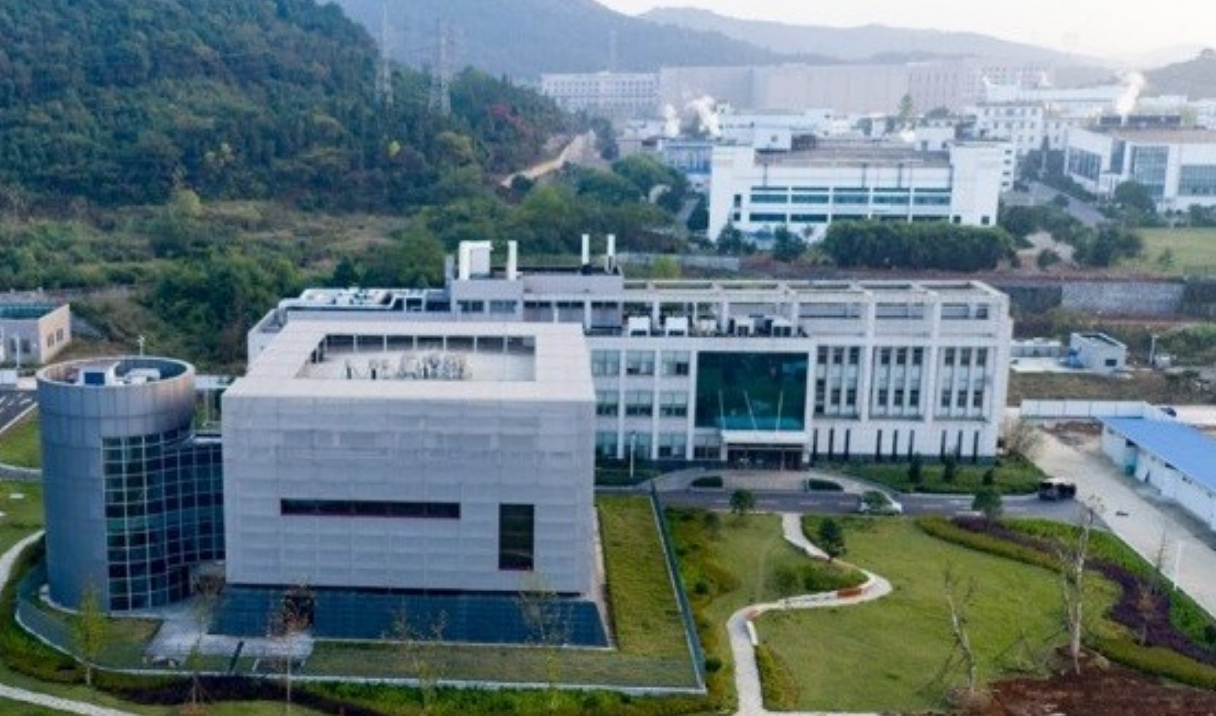
Wuhan’s secretive Institute of Virology © WIV
The controversy since then has been down to the fact that the EU ambassador to China backed down and acquiesced to Chinese demands without consulting Brussels or the other signatories to the article.
SARS-CoV-2, to give the virus its proper name, is the third severe coronavirus disease to appear this century. The others were the Severe Acute Respiratory Syndrome corona virus (SARS-CoV) and the Middle East Respiratory System corona virus (MERS-CoV). How it transferred from wild animals to humans is unknown. The viruses strongly resemble two types found in bats, but although consumers of bushmeat, as it’s known, consume certain types of animals not normally seen as a foodstuff, nobody eats bats. Except cats, of course, but we don’t eat cats, either, nor do we eat other predators by and large. SARS-CoV first emerged in 2002 in Guangdong, and was associated (rightly or wrongly) with the sale of civets at a local market.
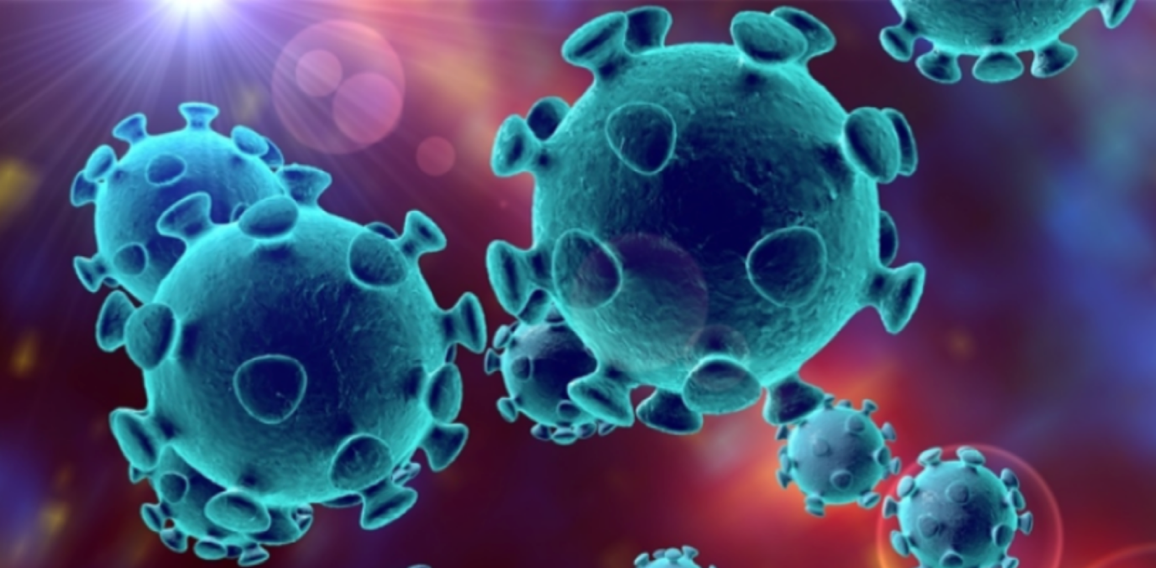
Ten years later, MERS-CoV arrived. SARS-Cov-2, the cause of Covid-19, is very similar to the SARS-CoV virus, while MERS-CoV is only slightly different, although 35% of those who catch it die, despite some strange-sounding advice from the World Health Organisation (WHO): “Until more is understood about MERS-CoV, people with diabetes, renal failure, chronic lung disease, and immunocompromised persons are considered to be at high risk of severe disease from MERS-CoV infection. These people should avoid contact with camels, drinking raw camel milk or camel urine, or eating meat that has not been properly cooked.” The WHO did not advise travel restrictions in connection with MERS-CoV. This disease, unlike SARS-CoV and SARS-CoV-2, did not originate in China, but has been experienced in Algeria, Austria, Bahrain, China, Egypt, France, Germany, Greece, Islamic Republic of Iran, Italy, Jordan, Kuwait, Lebanon, Malaysia, the Netherlands, Oman, Philippines, Qatar, Republic of Korea, Kingdom of Saudi Arabia, Thailand, Tunisia, Turkey, United Arab Emirates, United Kingdom, United States, and Yemen. In this case, the intermediary species between bats, where it is thought to have started, and humans is the dromedary. As the WHO explains, “dromedary camels are the major reservoir host for MERS-CoV and an animal source of infection in humans. Strains of MERS-CoV that are identical to human strains have been isolated from dromedaries in several countries, including Egypt, Oman, Qatar, and Saudi Arabia.” The worst outbreak was in Saudi Arabia, where 80% of the cases occurred. There seem to be no camels involved in the current pandemic.
SPIKING THE COPY
So here’s the background to the current scandal over this bowdlerised article: the EU ambassador to China, Nicolas Chapuis along with the ambassadors of the twenty-seven EU member states, decided to mark the 45th anniversary of EU-China diplomatic relations by issuing what’s called an “op-ed”, that is an article designed to be published in a newspaper opposite its editorial column, hence “op-ed” – opposite the editorial.
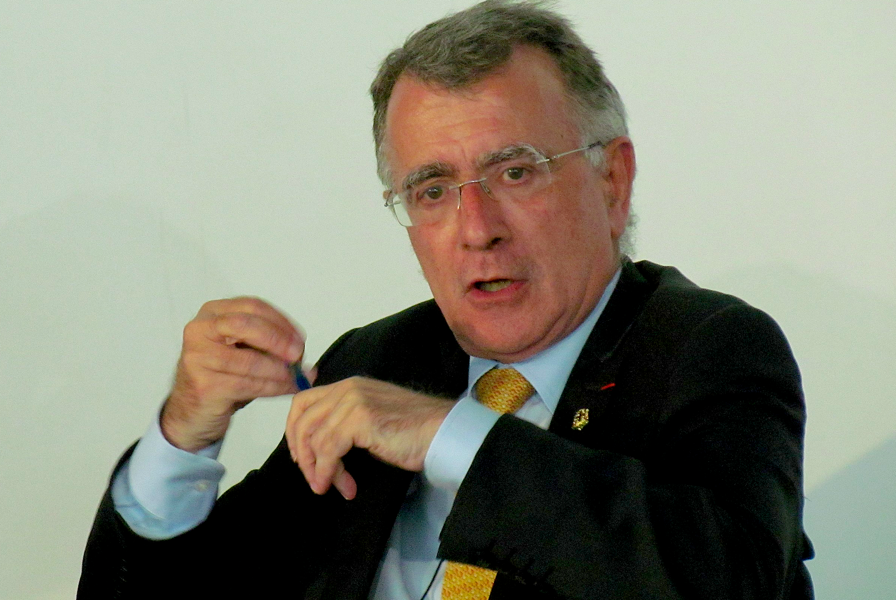
Nicolas Chapuis, Ambassador of European Union to China © Wikipedia
The article contained a sentence that regretted the newly-arisen obstacles to what it called the “deepening EU-China cooperation”, which was fine. However, the next sentence ran: “But the outbreak of the corona virus in China, and its subsequent spread to the rest of the world over the past three months, has meant that our pre-existing plans have been temporarily side-tracked as both the EU and China are fully mobilised to tackle what has now become a challenge of truly global proportions.” It looks and sounds innocent enough, but not to the Chinese Communist Party. It is not acceptable to state that the Covid-19 outbreak started in China, even though it clearly did. Chinese social media sites have sought to blame the United States as being the place where the virus originated and have also re-tweeted Iranian claims that the virus was “weaponised” in an American laboratory, which would be rather like inventing a machine gun that randomly shoots your own soldiers as well as the enemy and anyone else who happens to be nearby. But such is the appetite on social media for conspiracy theories that there is probably no notion too daft to be picked up and believed by someone. Some have even blamed the 5G smartphone network for causing and/or spreading the virus, which is scientifically ludicrous; some even attacked the masts that people need to avoid travel and to work from home. One has to suspect a hostile source for such errant and damaging nonsense. But it was not just the editing of the op-ed that has caused concern.
The incident came just two weeks after another scandal, first revealed in the New York Times, which alleged that a detailed report on scaremongering and disinformation had been watered down at the request of Beijing. In an article on 24 April, journalist Matt Apuzzo claimed that EU officials first delayed and then watered down a report on the spread of deliberate disinformation, even though, as he wrote, “The initial European Union report…was not particularly strident: a routine roundup of publicly available information and news reports.” The report mentioned Beijing’s attempts to deny the virus’s origins, because the Chinese authorities are still trying to blame the United States for it. The report also mentioned China’s criticism of France for being deliberately slow to respond to the pandemic as well as repeating the totally false claim that French politicians had used racial slurs against the head of the World Health Organisation. When the report was published, those references had been removed. At the risk of upsetting Beijing, I must repeat now clearly that France was no more bewildered and slow than most other countries (it acted more quickly than the UK, for instance) and that no French politician made racial comments about Dr Tedros Adhanom Ghebreyesus, Director-General of the WHO, at least not in public as China claimed and probably not at all. It was just a lot of lies and part of a complex global disinformation campaign, if the final EEAS report failed to say so. The fact is that some EU industries, including carmakers and farmers, rely on exports to China. Two-way trade between the EU and China was said to be worth €1.5-billion a day before the virus outbreak.
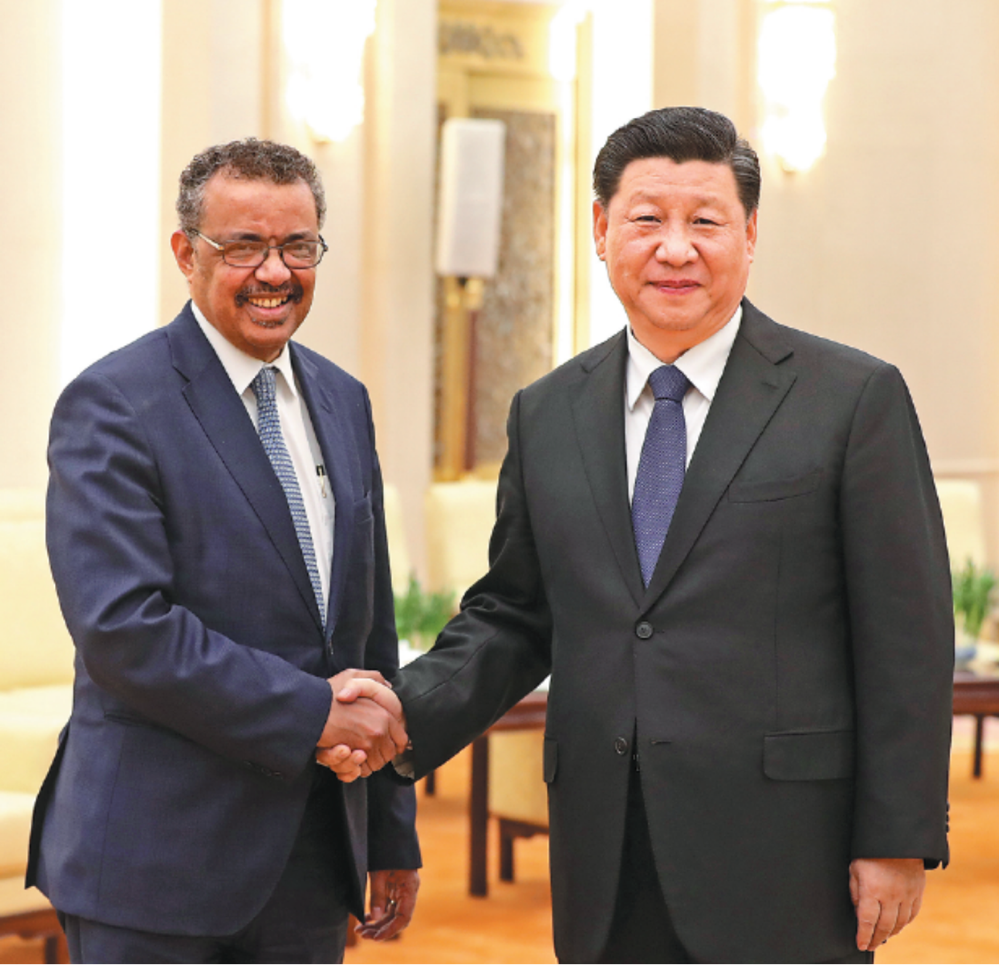
Xi Jinping shakes hands with Tedros Adhanom Ghebreyesus, director-general of the World Health Organization at the Great Hall of the People in Beijing Photo Feng Yongbin China Daily
DEADLY NONSENSE
A lot of disinformation is being circulated about the virus and the pandemic; China is not the only culprit, nor the worst. In fact, the European External Action Service (EEAS) even has a web page debunking the more dangerous and outrageously untruthful stories, EUvsDisinfo.eu. You may think it’s sad that some seek to make the current crisis worse for undefined political reasons. In Russia’s case, it seems to be simple mischief; sowing confusion in other countries and power blocs helps to reinforce Vladimir Putin’s unassailable grip on his country’s governance. Russia is undoubtedly the worst offender in the misinformation game. Its articles and statements sometimes read like a declaration of war, pushing to see how far the lies can go before it generates a response, like a bully picking on a bystander in a bar. The EU, of course, is not a military power so Putin probably feels safe. Moscow even funds a YouTube channel in German that claims the pandemic never happened. It had almost 900,000 views. What is surprising is Russia’s complete faith that enough people will believe what is clearly palpable nonsense to make it worthwhile to keep pumping it out. Among the garbage being peddled as news by Russia’s media outlets and trolls are claims that the whole pandemic is merely a front for a vaccination programme with DNA-altering properties to keep the public under control (currently scientifically impossible); that vaccine production is part of an agenda for a ‘New World Order” (it sounds as if they got that idea from the three latest Star Wars movies, although I can’t imagine Putin sees himself as the Emperor Sheev Palpatine); that frequent handwashing is no protection (it is, because soap dissolves the lipid envelope of the virus); that zinc could kill the virus (it can’t); that the pandemic is just a media scam (clearly not); and that Western media is hand-in-glove with the big pharmaceutical companies to boost their profits when China had already shown that the virus could be defeated with vitamin C (it can’t). All of it is just wicked and dangerous nonsense but it’s bound to find gullible takers in our highly-connected social media world of blogs, vlogs and Twitter feeds.
But China is also guilty of spreading disinformation. According to the EEAS “There is significant evidence of covert Chinese operation on social media. ProPublica uncovered a network on Twitter involved in a coordinated influence campaign with ties to the Chinese government.” Britain’s Daily Telegraph also found Chinese state media trying to circumvent the rules on political advertising on various social media platforms and buying advertising that praised China’s handling of the pandemic while attacking the United States. According to the Daily Telegraph, “the ads are part of a worldwide propaganda campaign, coordinated across Facebook, Instagram, Twitter and traditional media, attempting to depict China as a global leader in the fight against Covid-19 and drown out accusations that it made the crisis worse by trying to cover up its own outbreak.” It’s an attitude that might have pleased Mao Zedong, who wrote that “Politics is war without bloodshed while war is politics with bloodshed.” This is clearly politics, not war (at least, not in European eyes) but people are likely to die because of it, bloodshed or not.
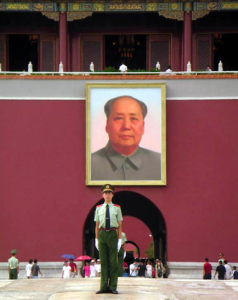
The EEAS quotes the Australian Strategic Policy Institute (ASPI) which analysed the spread of disinformation about the virus and concluded that “elements of China’s diplomatic and state media messaging continue to demonstrate disinformation tactics more familiar to coordinated and persistent Russian state-sponsored disinformation. Chinese state efforts to contest the information domain are supported by coordinated, although not necessarily inauthentic, pro-China patriotic trolling.” Journalists and activists not toeing the line have been arrested or expelled in all the states responsible for this outpouring of drivel.
We may laugh at the stories being peddled by the disinformation sources (mainly Russia and China but also Iran and Syria) but some people believe them, try out the various ‘cures’ they propose and think themselves safe. One social media site in Ukraine claims that drinking milk can help fight Covid-19; Aleksandr Lukashenko, President of Belarus suggests vodka as a cure, along with frequent saunas. At least his way would mean you died happy, I suppose. But this hostile propaganda has a very negative effect, especially when one in three people in Argentina, Germany, South Korea, Spain, the UK and the US claim to have seen “a great deal” of false or misleading information on social media and messaging apps, and when it is revealed that one in three British citizens actually believe that you can use vodka as a hand sanitiser. It would be a terrible waste of vodka; soap and water works better and is cheaper. The BBC reported that in one province of Iran more people had died from drinking industrial-strength alcohol than from Covid-19, based on the false claim that it could protect you from the virus.
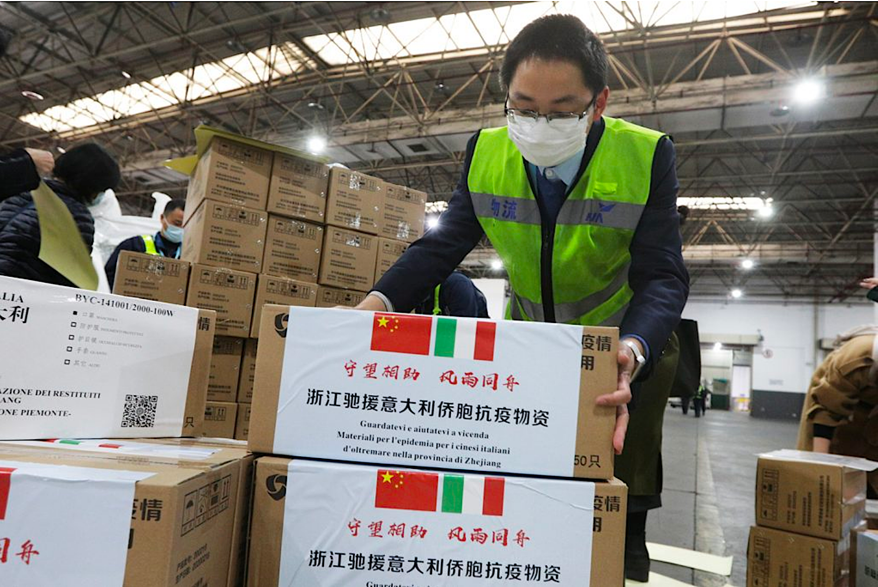
Chinese medical supplies to be sent to Italy © China Daily
Even so, China’s campaign seems to be working: by highlighting Beijing’s “gift” of protective equipment to Europe, while pouring scorn on Europe’s response to the virus, China has successfully swayed public opinion. Polls in some countries show citizens have more faith in China as ‘a friend’ and less faith in the EU. It’s a propaganda war that China and Russia appear to be winning.
THE BLAME GAME
Once the New York Times article was published there was a flurry of outraged activity, including an on-line meeting by video link of the European Parliament’s Foreign Affairs committee. The EU High Representative, Josep Borrell, attended by computer link and faced some difficult questions, despite denying that the report on disinformation had been toned down.

Committee chair and German Christian Democrat MEP David McAllister reminded members of a motion passed only two weeks earlier, condemning disinformation with regard to Covid-19. “The EU must become more resilient against crises in general,” he said, “to stay free of undue political and economic influence, such as from China and Russia, and that we must be ready to strategically communicate, to fight external disinformation, fake news and cyberattacks and to adapt continuously to the changing geopolitical landscape without ever compromising our core values.” Bold words and clearly deeply felt, but some attending the meeting felt Borrell had let the side down. He denied the report had been weakened, and that he had been in any way involved. “I was not even aware of what was happening,” he told MEPs, “I remember very well because the 24th was the day of my anniversary (birthday) and I was supposed to have a free afternoon, and on the afternoon of the 24, one of my friends from Spain told me ‘have you heard the news that there is a problem or something with the publication of a survey of some external action communication related with disinformation? This was the first time I knew about it. Then I asked for information from my services and I was informed that in this time they were publishing the article and later, for sure, later that evening I had to be completely aware of what was happening.” Borrell sounded unsure at that point and his usually near-perfect English faltered. He concluded by saying, however, that “I can assure you that I was not taking any pressure in order to create a publication that was biased due to any pressure from anyone.” I have never heard the urbane and assured Borrell sound so flustered and unsure of himself. He assured MEPs, though, that he’d been unaware of the claim that his service had given in to Chinese pressure, if only because he had taken time off to celebrate his birthday. It did sound pretty weak, as excuses go. In fact it sounded as if he really had not been informed until it was too late to do anything about it and in any case, he didn’t know what to do about it. Borrell firmly denied that the EEAS had caved in, though, even if not all members believed him.
Members of the committee demanded to see the report, both in its original form and also as published, to judge what changes may have been made. Borrell defended the EEAS and sought to refute the allegations of a cave-in. “I want to reaffirm that the European External Action Service recognises foreign disinformation and manipulation,” he told the European Parliament committee. “It often targets our values, our interests and it is a critical challenge to our open and democratic societies. In accordance with the mandate of the European Council, our services initially focussed on Russia’s disinformation campaigns, coming from State and non-State actors. This has progressively been enlarged to cover other geographical areas, namely the Southern Neighbourhood and the Western Balkans. The coronavirus pandemic has now taken this work to a new global dimension.” For most of us, the idea of deliberately making today’s unpleasant circumstances worse is virtually unthinkable. Borrell explained the motivation for the state and non-state actors engaged in the disinformation campaign, which he called an “infodemic”, a word we shall be hearing more of, no doubt: “First, there is a trend to portray Western democracies as weak, divided and unable to cope with the challenge, while those promoting such narratives try to present themselves as the most efficient and caring actors. Second, disinformation and harmful narratives pose a severe potential risk to our citizens, including to their health and to their trust in public institutions. Let me be blunt – disinformation can kill.”
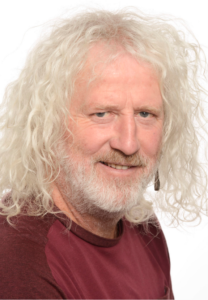
A few came to Borrell’s defence, among them, oddly, and possibly unintentionally, Irish MEP Mick Wallace of the United Left group, who was one of the few to be present in person and whose argument was hardly whole-hearted, being based more on the premise that Borrell was no worse than anyone else. “I’m not impressed with the report,” he said, “I find there are no serious links or sources for a lot of what they’re claiming and I find the report guilty of what it accuses others of: spreading disinformation. I mean, let’s tell the truth. Do Europeans? Do Americans? Do Chinese? Do Russians? They all engage in spin and propaganda. Honestly, I’d be a bit concerned at the direction Europe is going at the moment in its approach to China.” Indeed, Wallace argues, China comes out of the whole affair looking relatively good. “China acted swiftly to identify the mysterious virus,” he reminded MEPs, “informed the WHO and broke the chain of infection and there is no evidence of any suppression, and shouldn’t mature states have a basic requirement of evidence against others before making public accusations?” Fair enough, although Chinese propaganda is a fact of life, not a fantasy, and China’s allegations about France were simple fiction. But Wallace wasn’t finished. “How can this report talk about disinformation and not talk about Donald Trump, Boris Johnson; I mean why aren’t we straight about these things? There’s too much racist rhetoric about China at the moment and a lot of it is disconnected from reality.” He said such activities are not in Europe’s long term interests. In any case, it was clear that not all those who had listened to Borrell defending the EEAS were convinced. Even the German Green MEP Reinhard Butikofer, who praised the report for being “useful” and “fair”, advised Borrell “please tell your press people not to lie to the media”.

Peter Stano Chief spokesperson for the EEAS
The chief spokesperson for the EEAS is Peter Stano, who, on the 28 April, told a media briefing at the European Commission: “It is the EEAS that has the mandate to counter disinformation. One of the main tasks is to monitor and document the cases of disinformation, and the aim here is to raise awareness.” He told journalists that it’s not just a case of calling out obvious falsehoods but also the people responsible for them “showing we know what you are doing, we know how you are doing it, so we raise awareness both for the audiences, for the public, to be aware that this is going on, this is circulating around, also showing the methods, the platforms, the outlets, how it’s being spread.” The message, he said, is not just for the media, nor even for the public; it’s also a message to the perpetrators: “we know what you are doing, you who are engaged in spreading disinformation.” In other words, we know, they know, we know they know, and they know we know they know, but that doesn’t seem to deter them much.
CRITICISM IS A ONE-WAY STREET
The originators of disinformation are remarkably thin-skinned when it comes to criticism of themselves, however. Censoring the ‘op-ed’ item has led for calls for the EU ambassador to China, Nicolas Chapuis, to resign and he has been given a public dressing down for his actions, although it’s hard to see what his other options were. But it’s not so much what he did as the fact that he didn’t consult with Brussels and his fellow-ambassadors before doing so. The chain of events was explained to journalists at a European Commission briefing on May 7 by the foreign affairs spokesperson, Virginie Battu-Henriksson. “The EU delegation to China was informed that the publication could only take place in the China Daily and in the Chinese language version with the agreement of the Chinese Ministry of Foreign Affairs,” she said. “The EU delegation to China made known its concerns to the Ministry of Foreign Affairs of China in no uncertain terms, both on the protest and on the request to remove the sentence that relates to the origin and spread of the corona virus. This request was made to allow publication and we made very clear that we had serious concerns about it.” It was clear that the journalists, most of them regular and experienced followers of EU affairs, were not happy, but Battu-Henriksson tried to reassure them. “The EU continues to advocate for a free press, and other human rights, actually, and freedoms, including voicing our views to our Chinese counterparts, and at all levels,” she said. “In this particular case, the EU delegation decided nevertheless to proceed with the publication of the op-ed with considerable reluctance, as it considered it important to communicate on very key messages on EU priority policies; just to name a few, climate change and sustainability, human rights, multilateralism, and the global response to the corona virus. As I said, the full unedited op-ed was published on the EU delegation’s website and, actually, on several EU member states’ websites. It was also used on social media channels and distributed to Chinese media outlets, some of whom used it.”
The backlash was bound to hit Borrell and his team, facing onto the Rondpoint Schuman in Brussels. It’s his department, as spokesperson Peter Stano reminded journalists. “It’s the EEAS, actually, that has the mandate to counter in the field of disinformation,” he said. “One of the main tasks is to monitor, to document and to publish cases of disinformation, and the aim here is to raise awareness.” It could be argued that Chapuis was just doing that; even getting most of the article into print in China was worth the effort. He is seen in EU circles as an expert in Chinese affairs and seems to have felt he’d got the best result he could, under the circumstances. The disinformation campaigns of China, Russia and others have become an issue of national security and NATO has become involved in countering them. Secretary-General Jens Stoltenberg is concerned about the potential damage the lies can cause. “We have seen state and non-state actors try to take advantage of the pandemic to try to spread false and harmful narratives, and to try to divide us,” he warned, “so allies need to work closely together to identify, to monitor and to expose these efforts. An open and transparent press is the best bulwark against disinformation and propaganda.” An open and transparent press would seem to be absent from the countries responsible for distributing the disinformation, although China is very active in lobbying.
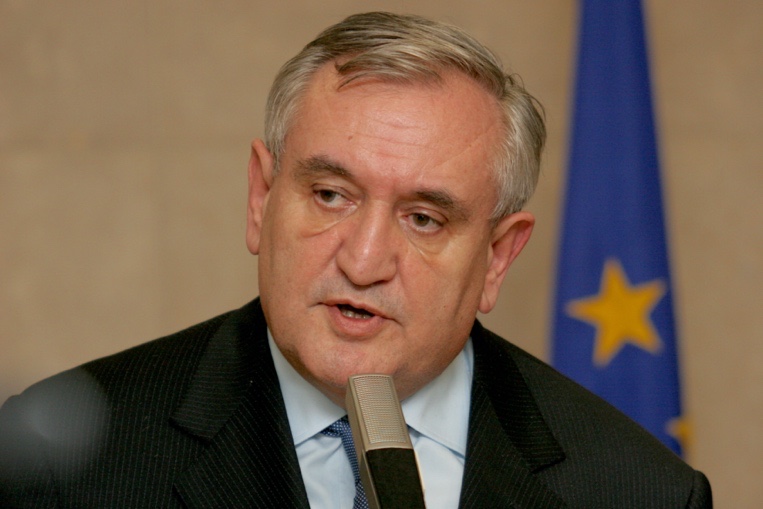
Former French Prime Minister Jean-Pierre Raffarin © Edm
The Fondation France Chine, for example, headed by former French Prime Minister Jean-Pierre Raffarin, has offices in Paris and Shanghai, while Chinese views are being put across to legislators by European experts, to the annoyance of the campaign group, Corporate European Observatory. In a recent press release, it wrote that “lobbying in Europe on behalf of this authoritarian regime appears to be largely taking place under the radar. While the public clearly has a right to know what paid lobbyists of all stripes – including those working on behalf of non-EU member state governments – are up to, and how they might be influencing our politicians and our futures, we continue to be denied that right by the EU’s own failure of lobby transparency rules.”
HISTORICAL TRUTH, HISTORICAL FABLE
China has been no stranger to fabrication and falsehood throughout its long history. Even the works of the great scholar Confucius have been subjected to some enhancement, according to John Keay in his fascinating book, ‘China – a History’. Writing of works that may or may not have been the work of Kong Qiu, as he was more properly known, Keay notes that “their compilation in the forms that survive today resulted from several ‘layers’ of scholarship, not to mention dollops of blatant fabrication, spread over many centuries.” Enhancing the historical records of heroes real or imagined is a pastime that was common in Europe, too; who can forget Charlemagne’s messenger, Roland, famed in the oldest surviving example of French literature, the Song of Roland, the almost certainly fictional King Arthur and Robin Hood and the Hungarian hero who impaled people and was turned by fiction into a vampire, Vlad Dracul? Some existed, some didn’t, but many people could tell you stories about them, most of them dreadfully exaggerated and with only the most tentative link to truth. It’s a worrying thought that long after the Covid-19 epidemic is over, some people may be able to relate stories about it that owe more the China’s Foreign Affairs Ministry or Russia’s troll factories than to actual facts. How many of the falsehoods will live on in public beliefs?
Let’s take a look at the reality, not as seen through the deliberately screwed up view of hostile propagandists but according to the science. Corona viruses in their more recent and dangerous forms are explained in detail in the Journal of Clinical Microbiology. “The viruses SARS-CoV (betacoronavirus), 229E (alphacoronavirus), HKU1 (betacoronavirus), NL63 (alphacoro-navirus), OC43 (betacoronavirus), and MERS-CoV (betacoronavirus) can all cause infections in humans.

However, betacoronaviruses are the most important group because they comprise the most highly pathogenic viruses against humans, including SARS-CoV-2, MERS-CoV, and SARS-CoV. The highly pathogenic MERS and SARS coronaviruses originated in bats, however the origin of the newly emerged SARS-CoV-2 remains debatable. Investigations have revealed that the SARS- CoV strains detected in market civets were transmitted from horseshoe bats. These viruses were found to be phylogenetically related to SARS-CoV in bats from China, Europe, Southeast Asia, and Africa. In addition, the genome sequences of SARS-CoV strains isolated from humans were highly similar to those in bats.” Of course, China and the United States may well go on blaming each other for the virus but it seems more likely that we should blame bats, most especially members of the rhinolophidae family, the horseshoe bats. Even so, no-one seems to have much idea of how a bat virus crossed over into humans. There has to have been an intermediary species that acted unconsciously as the vector but its identity remains a mystery.
Before this pandemic comes to an end we can expect lots of fabrications and lies. Most people in Europe see the disease as a reason to work more closely together (subject to ‘social distancing’, I suppose) and to cooperate to find a way through it. Others, especially Russia, China, Syria and Iran but there are more players in this strange game, see it as an opportunity to cause confusion, unhappiness and death in countries they don’t care about or against which they hold a grudge. Just as some countries or regions are easing restrictions on travel, work and exercise, and as the European Centre for Disease Prevention and Control (ECDC) is warning Europe to brace itself for a second wave of infections, expect more scare stories, more false ‘cures’, more anti-government propaganda, anti-European fake news and so on. Even when the fight against the virus is done, the spreaders of false stories will still be at work and cleaning up after them could take years. As the 19th century English preacher C.H. Spurgeon put it: “If you want truth to go round the world you must hire an express train to pull it; but if you want a lie to go round the world it will fly; it is as light as a feather, and a breath will carry it. It is well said in the old proverb. ‘a lie will go around the world while truth is pulling its boots on’.” It’s an old saying also repeated by the late fantasy writer, Terry Pratchett, in a book called ‘The Truth’, which is about a newspaper’s attempt to expose a conspiracy to change a state in favour of the most powerful. It’s funny how fact and fiction can have so much in common, isn’t it?
T. Kingsley Brooks
Click here to read the 2020 June edition of Europe Diplomatic Magazine


